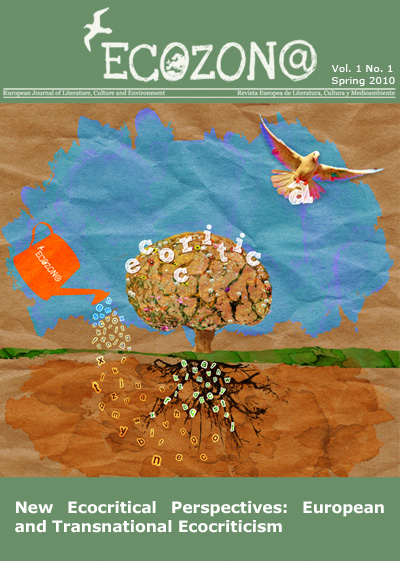Ecocrítica y ecoantropología
DOI :
https://doi.org/10.37536/ECOZONA.2010.1.1.337Mots-clés :
interdisciplinariness, humanistic sciences, philology, anthropology, ecocriticism.Résumé
Key words: interdisciplinariness, humanistic sciences, philology, anthropology, ecocriticism
The supposed interdisciplinariness which humanistic sciences, such as philology and anthropology, often claim remains, as often as not, in simple wordiness, particularly in the area of ecocriticism. Most specialists tend to ignore the techniques and methods of other disciplines, and therefore researchers lack the benefit which could come out of their intersection. The Spanish case is clear; despite the fact that the Americanist anthropology which is practiced in Spain is clearly of an ecocritical bent, one does not perceive in debate forums or publications any encounters between philology and anthropology, whereas it seems to be increasingly necessary to bridge the gap between both.
Palabras clave: interdisciplinariedad, ciencias humanas, filología, antropología, ecocritica
La supuesta interdisciplinariedad de la que alardean ciencias humanas como la filología y antropología queda en muchas ocasiones en simple palabrería, particularmente lo que concierne a la ecocrítica. Los especialistas tienden a ignorar técnicas y métodos de otras disciplinas, de forma que las investigaciones carecen del beneficio que aporta la intersección de las mismas. El caso español es claro en este sentido: a pesar de que la antropología americanista que se cultiva en España es claramente de orientación ecocrítica, no se observa ni en foros ni en publicaciones que hayan existido muchos encuentros entre la filología y la antropología y parece cada vez más urgente crear lazos y puentes entre ambas.
Téléchargements
Téléchargements
Numéro
Rubrique
Licence
Authors who publish with this journal agree to the following terms:
a) Authors retain copyright and grant the journal right of first publication with the work simultaneously licensed under a Creative Commons Attribution License that allows others to share the work with an acknowledgement of the work's authorship and initial publication in this journal (CC BY-NC for articles and CC BY-NC-ND for creative work, unless author requests otherwise.
b) Authors are able to enter into separate, additional contractual arrangements for the non-exclusive distribution of the journal's published version of the work (e.g., post it to an institutional repository or publish it in a book), with an acknowledgement of its initial publication in this journal.
c) Authors are permitted and encouraged to post their work online (e.g., in institutional repositories or on their website) prior to and during the submission process, as it can lead to productive exchanges, as well as earlier and greater citation of published work (See The Effect of Open Access).










